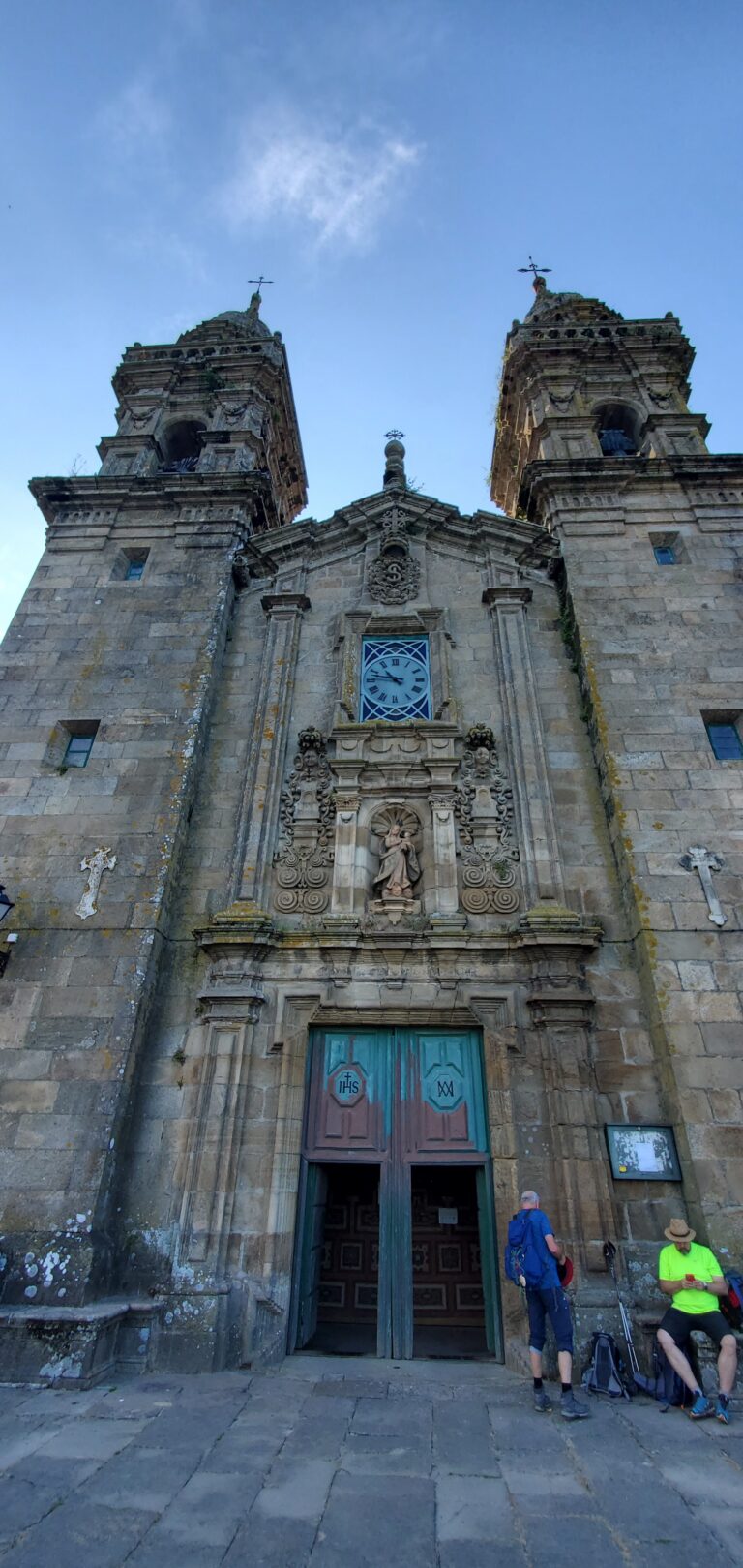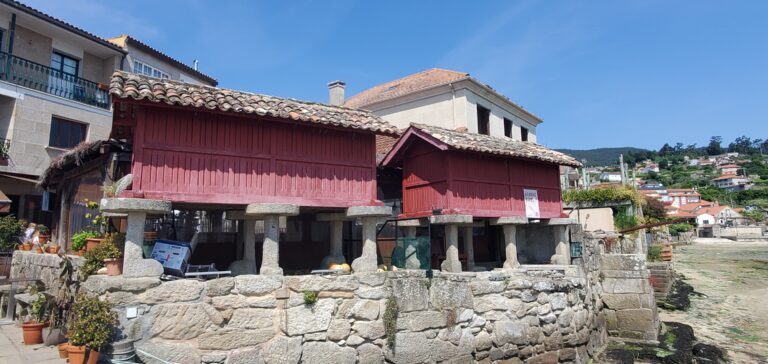It was the second week of December, with the weather in northern California cool enough to warrant a hat and coat when standing outside, conversing with those who walked toward our door. Most were attracted by the sign that offered restrooms, coffee, and a listening ear; others wanted to know if we had hazmat gear.
It was the first day since the fire the roads to the small town of Paradise were open to former residents. The name seemed an oxymoron when walking along the road where the houses had been replaced with ashes, burned down to their foundations. A blackened metal frame of a car sat on what used to be a driveway. The brick fireplace was the only standing structure on the plot. Then an occasional house was left standing, practically unscathed.
There was no order or explanation for the path of 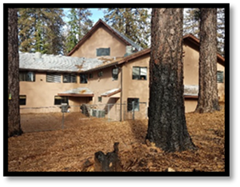 the flames roaring through the town on November 8th, 2018. The church building, where we (the Green Cross Academy of Traumatology) and a couple other organizations set up resources and donations, was right on the edge of the town, but remained untouched by the flames. Even as nearby trees were blackened, the blanket of flammable pine needles never caught fire.
the flames roaring through the town on November 8th, 2018. The church building, where we (the Green Cross Academy of Traumatology) and a couple other organizations set up resources and donations, was right on the edge of the town, but remained untouched by the flames. Even as nearby trees were blackened, the blanket of flammable pine needles never caught fire.
Individuals, couples, and occasionally families were coming to see what, if anything, was left of their possessions. With the potential for hazardous material, they were encouraged to wear Tyvek suits or some other form of protection when sifting through the ashes. Many were seeking some form of closure, seeing the reality of their loss, but also looking for symbols, objects that carried significance.
 “I’m just hoping the clay jars my kids made are still intact.”
“I’m just hoping the clay jars my kids made are still intact.”
“I want to find the jewelry left by my grandma. They are now heirlooms. But I know I shouldn’t get my hopes up.”
As the day progressed, more people came by on their way back, attracted first by the restroom, after hours working with no relief. Some were ready to talk, describing the experience itself—the sudden orders to evacuate, looking for a pet, jumping in the car, hitting the traffic of fleeing residents even as two lanes turned into five, feeling the heat even from within the vehicle, thinking they would not survive, yet somehow making it out alive.
Many were still overwhelmed by current dilemmas. Housing in the area was limited and after a month of living in close quarters, nerves were starting to get frayed. Early solidarity was fading into disputes over shared space. Life was in upheaval and there was no easy end in sight.
Christmas Losses
Christmas is around the corner, and I can’t 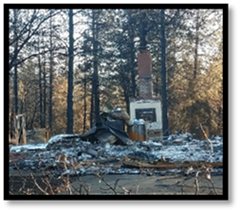 help but think of these families whose community, homes, friends, jobs, and all “norms” are gone. The fireplace where they hung their stockings is standing alone, covered in soot. This year they are not decorating that tree in the back yard, making cookies in the familiar kitchen, watching “It’s a Wonderful Life” in the living room, hiding presents in the closet, or setting that big family table with their special china set. It’s all gone.
help but think of these families whose community, homes, friends, jobs, and all “norms” are gone. The fireplace where they hung their stockings is standing alone, covered in soot. This year they are not decorating that tree in the back yard, making cookies in the familiar kitchen, watching “It’s a Wonderful Life” in the living room, hiding presents in the closet, or setting that big family table with their special china set. It’s all gone.
But they are not the only ones who feel loss this Christmas. This year is the first without my grandma, and while I’m in a different city, I know my family will feel her absence over Christmas dinner. How many others out there are feeling the loss of a family member or friend who always made that special recipe, or loved that particular Christmas carol, or hung that hand-made ornament on the tree?
For many people, Christmas is full of traditions, some preserved despite difference in location. Growing up, I lived in three different countries, and since then I and my family have lived in many cities and houses. There are certain recipes that have traveled with us to countless kitchens and certain traditions that have been preserved. But each time we were in a new place we had to reconstruct some sense of familiarity, such as mounting a cardboard fireplace on the concrete apartment wall as a place to hang the stockings. How many people this Christmas are feeling the loss of “home” in a new place, with different people? They feel the ache when hearing the “I’ll Be Home for Christmas” song or missing the snow/sun/rain that characterized their “home” weather.
Others have experienced loss through their own health. There is the cancer that keeps him trapped in a hospital, the stroke that left her unable to sing Christmas carols, the injury that keeps him from hanging the Christmas lights, or the depression that makes it hard to say, “Merry Christmas.” Those memories of what they were able to do last year, or maybe ten years ago, seem just out of reach.
Mixed Feelings
 Christmas is a season of emotions, sometimes conflicting with each other. Fundamentally, it is a season centered on the good news of Christ’s birth. We sing “Joy to the World” and “Peace on Earth,” remembering the salvation available through God’s ultimate gift to us. Christ became human: a real person who felt both joy and pain. Because of Christmas we know that God understands and accepts us in the midst of not only celebration, but sorrow.
Christmas is a season of emotions, sometimes conflicting with each other. Fundamentally, it is a season centered on the good news of Christ’s birth. We sing “Joy to the World” and “Peace on Earth,” remembering the salvation available through God’s ultimate gift to us. Christ became human: a real person who felt both joy and pain. Because of Christmas we know that God understands and accepts us in the midst of not only celebration, but sorrow.
If you are one of those people who feels the pang of grief or the ache of loss, know that you are not alone. Many around you are smiling, but more than you might think can relate to you, whether emotions felt this year or previous experiences.
If you are not one of those people, I would challenge you to stop and think about others in your life who might be experiencing grief and loss. Reach out to them, invite them over to make Christmas cookies, let them feel loved, and give them space to share their feelings. Not all feel ready to tell you those emotions, but knowing that you are ready to listen means a lot. Even little things like sending a Christmas card can make a big difference for the one who feels lonely. 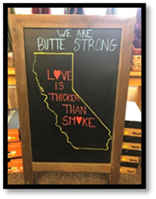
If you are not aware of someone close to you in that place of pain, consider showing love to those who have experienced disasters like the fire, those at the homeless shelter, or the ones with no one visiting them in the hospital or nursing home. This is the season of giving. Look for ways to give love in abundance. That’s what we’re celebrating: the love of God that we are told to pass on to others.
